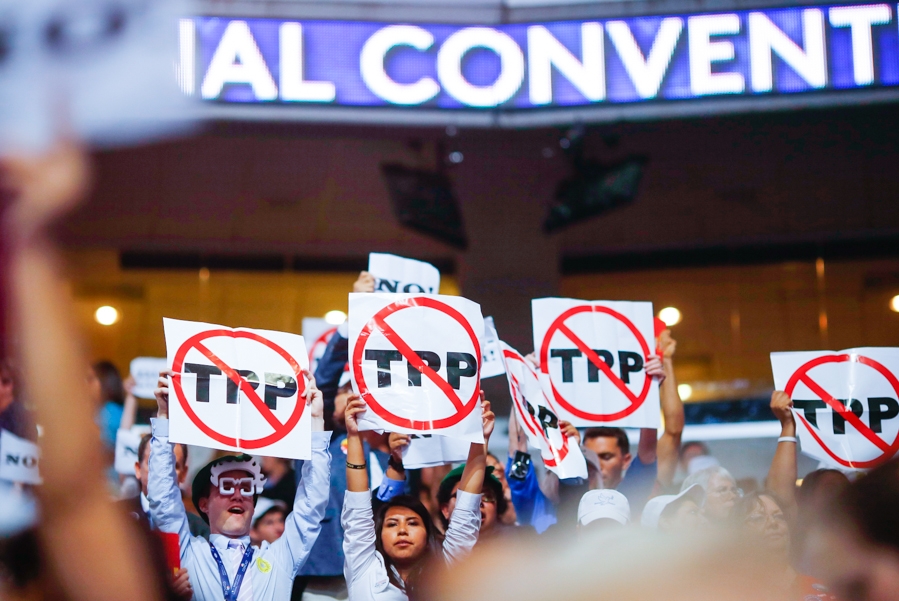Cambodia: Analysts: TPP demise saves Cambodia
US President Donald Trump’s executive order pulling the US out of the Trans-Pacific Partnership (TPP) has allayed Cambodia’s fears that it would lose its competitiveness in the garment industry, analysts said yesterday.
“The potential threats to the Cambodian garment industry under the TPP will be abated as the US is the second-largest destination of garment exports,” said David Marshall, co-managing partner of a research firm Mekong Strategic Partners.
The TPP would have eliminated most tariffs in the garment sector and there were fears that Cambodia’s garment exports would lose out in favor of Vietnam – that was set to benefit from the slashed tariffs as one of the 12 Pacific-rim countries that signed on the deal and was close to ratifying it in its legislature.
“Let’s say Cambodia has just been saved by the gong for the time being, with the TPP being declared unwanted by the Trump administration,” said David Van, Cambodia managing director for the Bower Group Asia.
“Cambodia had been worried about migration of FDI [foreign direct investment] towards Vietnam,” he said.
“As President Trump seems to favor bilateral agreements instead of regional ones, Cambodia could eventually seize this opportunity to negotiate one such bilateral agreement with the US,” added Mr. Van.
He, however, pointed out that Cambodia would have to work hard on the bilateral agreement with the US.
“The initial BIT [bilateral investment treaty] was abandoned back in 2007 and only recently re-initiated at the end of 2015, with a major stumbling block being the guaranteed protection for US corporations from the Cambodian perspective,” said Mr. Van.
A BIT provides major benefits for US investors in another country, including national treatment, fair and equitable treatment, protection from expropriation and performance requirements for investments, and access to neutral dispute settlement.
“It is unlikely that garment manufacturing would return in a meaningful way to the US because of wage competitiveness,” said Mekong Strategic Partners’ Mr. Marshall.
However, he added: “The EU remains one of Cambodia’s major export destinations for garments and other products such as rice.”
Mr. Marshall said Cambodia has been diversifying its export markets which will mitigate any slowdown.
“Cambodia is still forecasted to have robust growth around the seven percent range in the next few years despite these changes,” he added.
Ear Sophal, author of “Aid Dependence in Cambodia: How Foreign Assistance Undermines Democracy” and an associate professor of diplomacy and world affairs at Occidental College in Los Angeles, said that the cancellation of the TPP will not have a big impact on Cambodia’s interests.
“At the margin this does not have much impact on Cambodia, in my view. When others don’t grow as fast, it doesn’t mean Cambodia grows faster,” said Mr. Sophal.
Mr. Sophal said there were lesser-known elements of the TPP that would have been necessary to implement if Cambodia signed on to the deal, like workplace health and safety regulations, intellectual property and environmental protection.
“The real loss is the high standards that would have arisen because of TPP. While Cambodia would unlikely have joined, if it did, its environmental and labor standards would have risen, which would have been good for the country and its workers,” he said.
“Basically, the bar for TPP was set high. If you wanted to play in TPP, the rules were stricter. Now they will remain low and things like intellectual property rights won’t be as protected,” he added.
Source: http://www.khmertimeskh.com/news/34690/analysts–tpp-demise-saves-cambodia/


 Thailand
Thailand




